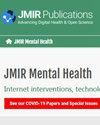将移动保健技术与药物疗法相结合,改善西非的心理健康成果并减少侵犯人权行为:实地干预试验
IF 5.8
2区 医学
Q1 PSYCHIATRY
引用次数: 0
摘要
背景在西非,医治者的人数远远超过受过培训的心理健康专业人员。治疗者经常在 "祈祷营 "中为严重精神疾病(SMI)患者看病,在那里,他们的人权也可能受到侵犯。我们开发了 M&M,这是一项为期 8 周的双管齐下的干预措施,其中包括:a) 一套智能手机工具包,旨在让治疗师接触简短的心理社会干预措施,并鼓励他们维护人权(M-Healer 应用程序);b) 一名出诊护士,为患者提供药物(移动护士)。目的考察 M&M 干预方法在真实祈祷营环境中的可行性、可接受性、安全性和初步有效性。方法我们在加纳的一个祈祷营中对 SMI 患者和医治者进行了一次 M&M 单臂现场试验。向治疗者提供了安装有 M-Healer 的智能手机,并由实践促进者培训他们使用数字工具包。与此同时,一名研究护士也到祈祷营为患者进行药物治疗。临床评估人员分别在治疗前(基线)、治疗中(4 周)和治疗后(8 周)对患有 SMI 的参与者进行研究测量。结果17名参与者参加了研究,其中大部分(15人,88.3%)被保留下来。参与者的平均年龄为 44.3 岁(标准差:13.9),59%(n=10)为男性。14名参与者(82%)被诊断患有精神分裂症,2名参与者(18%)被诊断患有躁郁症。四名治疗师接受了使用 M-Healer 的培训。他们平均每周自发使用应用程序 31.9 次(标准差:28.9)。治疗者平均观看 19.1 个视频(标清:21.2),回复 1.5 个提示(标清:2.4),每周使用该应用 5.3 天(标清:2.7)。前后分析发现,精神症状严重程度(简易精神病评定量表:52.3 至 30.9;简易精神病评定量表:52.3 至 30.9;简易精神病评定量表:52.3 至 30.9;简易精神病评定量表:52.3 至 30.952.3 降至 30.9;简明症状量表:76.4 降至 27.9)、心理压力(塔尔比简明压力量表:37.7 降至 16.9)、羞耻感(其他羞耻感量表:41.9 降至 28.5)和耻辱感(简明精神疾病内化耻辱感量表:11.8 降至 10.3)均有明显降低。根据我们的记录,被锁链锁住的天数明显减少(从 1.6 天减少到 0.5 天),被迫禁食的天数也有减少的趋势(从 2.6 天减少到 0.0 天,p = 0.059)。在患者报告的与治疗师的工作联盟(工作联盟量表)、抑郁症状严重程度(患者健康问卷-9)、生活质量(精神病患者雷曼生活质量访谈)、对药物的信念(对药物的信念问卷--一般伤害分量表)或其他侵犯人权行为方面,我们没有发现明显的前后变化。试验过程中未出现重大副作用、违反健康和安全规定或严重不良事件。结论事实证明,M&M 干预是可行的、可接受的、安全的,而且在临床上很有前景。初步研究结果表明,M&M 治疗师工具包可能会改变祈祷营中治疗师的行为,从而减少他们侵犯人权的行为。本文章由计算机程序翻译,如有差异,请以英文原文为准。
Combining mHealth Technology and Pharmacotherapy to Improve Mental Health Outcomes and Reduce Human Rights Abuses in West Africa: Intervention Field Trial
Background: In West Africa, healers greatly outnumber trained mental health professionals. People with serious mental illness (SMI) are often seen by healers in “prayer camps” where they may also experience human rights abuses. We developed M&M, an 8-week long dual-pronged intervention involving a) a smartphone-delivered toolkit designed to expose healers to brief psychosocial interventions and to encourage them to preserve human rights (M-Healer app), and b) a visiting nurse who provides medications to their patients (Mobile Nurse). Objective: To examine the feasibility, acceptability, safety, and preliminary effectiveness of the M&M intervention in real-world prayer camp settings. Methods: We conducted a single-arm field trial of M&M with people with SMI and healers in a prayer camp in Ghana. Healers were provided with smartphones with M-Healer installed and were trained by practice facilitators to use the digital toolkit. In parallel, a study nurse visited their prayer camp to administer medications to their patients. Clinical assessors administered study measures to participants with SMI at pre-treatment (baseline), mid-treatment (4 weeks) and post-treatment (8 weeks). Results: Seventeen participants were enrolled in the study and most (n=15, 88.3%) were retained. Participants had an average age of 44.3 (SD: 13.9) and 59% (n=10) were male. Fourteen participants (82%) had a diagnosis of schizophrenia and two participants (18%) were diagnosed with bipolar disorder. Four healers were trained to use M-Healer. On average, they self-initiated app use 31.9 (SD: 28.9) times per week. Healers watched an average of 19.1 videos (SD: 21.2), responded to 1.5 prompts (SD: 2.4), and used the app for 5.3 days (SD: 2.7) weekly. Pre/post analyses found a statistically significant and clinically meaningful reduction in psychiatric symptom severity (Brief Psychiatric Rating Scale: 52.3 to 30.9; Brief Symptom Inventory: 76.4 to 27.9), psychological distress (Talbieh Brief Distress Inventory: 37.7 to 16.9) shame (Other as Shamer Scale: 41.9 to 28.5), and stigma (Brief Internalized Stigma of Mental Illness Scale: 11.8 to 10.3). We recorded a significant reduction in days chained (1.6 to 0.5) and a promising trend for reduction in days of forced fasting (2.6 to 0.0, p = 0.059). We did not identify significant pre/post changes in patient-reported working alliance with healers (Working Alliance Inventory), depressive symptom severity (Patient Health Questionnaire-9), quality of life (Lehman Quality of Life Interview for the Mentally Ill), beliefs about medication (Beliefs about Medications Questionnaire – General Harm sub-scale) or other human rights abuses. No major side effects, health and safety violations, or serious adverse events occurred over the course of the trial. Conclusions: The M&M intervention proved to be feasible, acceptable, safe, and clinically promising. Preliminary findings suggest the M-Healer toolkit may have shifted healer behaviors at the prayer camp so that they commit fewer human rights abuses.
求助全文
通过发布文献求助,成功后即可免费获取论文全文。
去求助
来源期刊

Jmir Mental Health
Medicine-Psychiatry and Mental Health
CiteScore
10.80
自引率
3.80%
发文量
104
审稿时长
16 weeks
期刊介绍:
JMIR Mental Health (JMH, ISSN 2368-7959) is a PubMed-indexed, peer-reviewed sister journal of JMIR, the leading eHealth journal (Impact Factor 2016: 5.175).
JMIR Mental Health focusses on digital health and Internet interventions, technologies and electronic innovations (software and hardware) for mental health, addictions, online counselling and behaviour change. This includes formative evaluation and system descriptions, theoretical papers, review papers, viewpoint/vision papers, and rigorous evaluations.
 求助内容:
求助内容: 应助结果提醒方式:
应助结果提醒方式:


